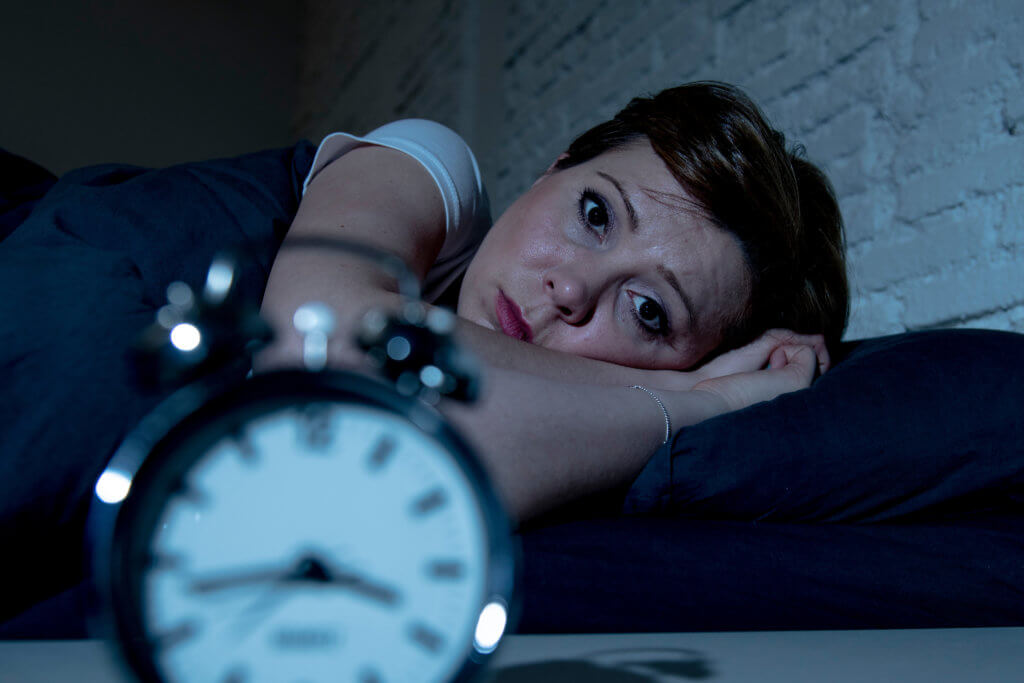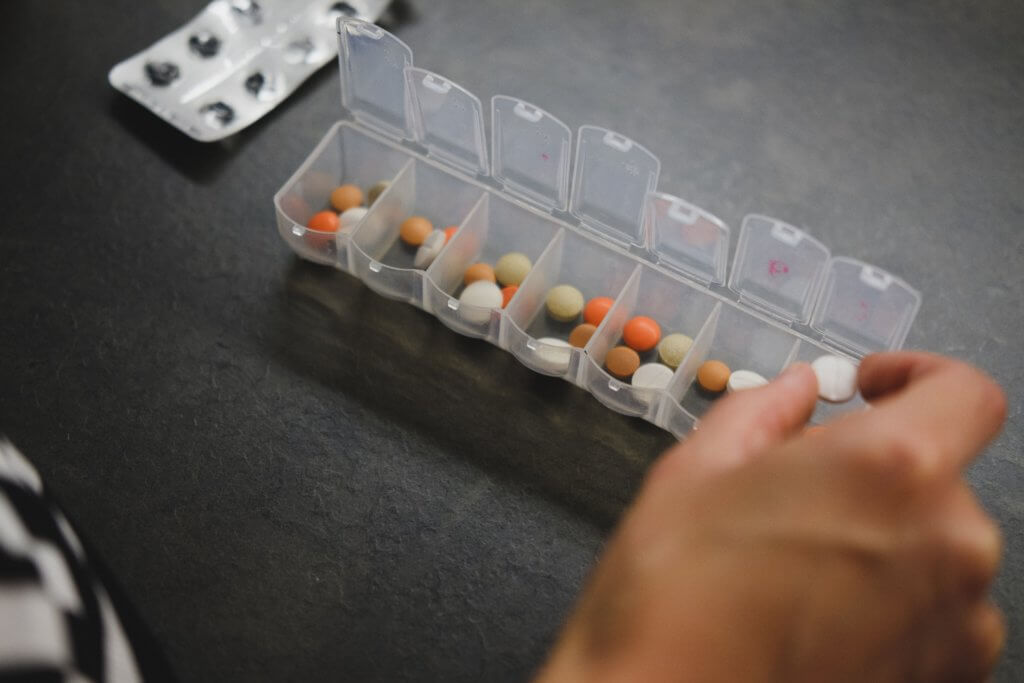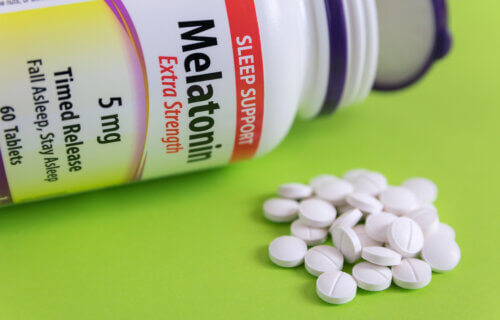Melatonin has become a popular dietary supplement known for assisting people to fall or stay asleep. Long before it came in a jar, however, melatonin was known for being a natural hormone produced by your brain in response to darkness. It plays a role in your body’s 24-hour internal clock (circadian rhythm) and in sleep. Exposure to light at night (light pollution) can block melatonin production.
Since melatonin became such a popular supplement, scientists have found that it plays other important roles in the body, but not all of those are fully understood. Do you know enough about melatonin to consider using it safely? Let’s take a look at some of the common beliefs out there and see which are actually true.
1. Melatonin supplements may help with anxiety experienced during the day
Fact. Melatonin has a natural anti-anxiety (anxiolytic) effect. Many people have less than optimal natural melatonin levels due to light pollution. Not getting enough time in darkness at night does not allow sufficient natural melatonin production. It is a common issue in our sleep-deprived society. Scientists at the Long University of Medicine in San Antonio state that since melatonin is freely available, economical, and has limited side-effects, it may be considered an additional or alternative treatment for a variety of conditions associated with anxiety.
Consult your physician before using melatonin for anxiety or any other purpose. Although anxiety is experienced during the day, melatonin for anxiety may be administered at night, due to it causing drowsiness.
Melatonin supplements are used effectively and safely with some other conditions, such as jet lag, some sleep disorders in children, and anxiety before and after surgery.
2. Melatonin may help prevent and treat COVID-19
Fact: A recent study produced evidence that COVID-19 infection was notably less common in those using supplemental melatonin. A recent case series of 10 patients with COVID-19 pneumonia noted that melatonin supplementation was associated with a shorter hospital stay, briefer mechanical ventilation, and fewer deaths.
3. Melatonin is the first intervention recommended for treatment of chronic insomnia
Fiction: People with insomnia have trouble falling asleep, staying asleep, or both. When symptoms last a month or longer, it is called chronic insomnia. Practice guidelines from the American Academy of Sleep Medicine (AASM) and the American College of Physicians do not include the use of melatonin for chronic insomnia because there is not enough convincing evidence on the safety or effectiveness of melatonin supplementation for this purpose. The American College of Physicians guidelines strongly recommend the use of cognitive behavioral therapy as an initial treatment for insomnia.
“Melatonin isn’t a ‘one-size-fits-all’ solution to nightly sleep trouble,” says Jennifer Martin, PhD, a clinical psychologist and member of the AASM board of directors, and a professor of medicine at UCLA, in the Journal of Clinical Sleep Medicine. “People who have difficulty sleeping should try making changes in their bedtime routine and environment first, and if that doesn’t help, or their insomnia becomes chronic, they should work with their medical provider to find the best treatment option.”

4. Melatonin is used effectively to regulate sleep in nightshift workers
Fact: Feeling sleepy at work and difficulty sleeping during the daytime are two hazards of people working nightshifts. The body usually produces melatonin in the evening. Taking melatonin supplements at other times of the day may help prepare the body for sleep in nightshift workers. The American Academy of Sleep Medicine notes, however, that it does not necessarily lead to better alertness during the work shift.
5. People who occasionally use melatonin for sleep should follow the recommendation for dosing on the label
Fiction: Some melatonin supplements may not contain what is listed on the product label. A 2017 study assessed 31 different melatonin supplements bought from grocery stores and pharmacies. Melatonin content varied from −83 percent to +478 percent of labeled melatonin; 70 percent had melatonin concentrations of 10 percent of what the labels claimed. Also, 26 percent of the supplements contained serotonin, a hormone that can have harmful effects even at low levels.
The most variable sample, and most likely used in children, was a chewable tablet. It contained almost 9 mg of melatonin when it was supposed to contain 1.5 mg and showed the greatest variability between lots (465 percent difference). Liquid supplements surprisingly showed high to medium stability with low lot-to-lot stability. The least variable products were those that contained the simplest mix of ingredients, usually oral or sublingual tablets with melatonin added to a filler of silica or cellulose derivatives.
6. Melatonin can affect semen quality in men
Fact: In a study in which moderate doses of melatonin were administered to eight healthy men, six had no changes in semen quality, quantity, or sperm count. Two of the men experienced decreases in sperm concentration in semen and sperm motility during treatment. Six months after melatonin treatment, one man’s semen and sperm had returned to normal, but one man’s semen and sperm did not return to normal.
The usefulness of this study is uncertain, primarily because of the small sample size. Certainly, there is a need for more research with larger numbers of participants. Each man interested in conceiving while also using melatonin, or considering using it, must choose to what degree he uses the findings of this limited study to decide about using melatonin.
7. Melatonin is safe to use with other drugs
Fiction. Melatonin can interact with numerous drugs. The following are drugs which are known to have significant adverse interactions with melatonin:
- Blood pressure medications (especially nifedipine)
- Products that contain caffeine (coffee, tea, sodas)
- Drugs that may affect your immune system (e.g., azathioprine, cyclosporine, prednisone)
- Blood thinners (e.g., warfarin, heparin)
- Fluvoxamine (Luvox)
Consult your physician and inquire about drug interactions before using melatonin.

8. Gummies are a safe and effective way to use melatonin in children
Fiction: Use of over-the-counter melatonin might place children and teenagers at risk for accidental or intentional overdose. There are few studies on children and melatonin. Since melatonin is a hormone, it is possible that melatonin supplements could affect hormonal development, including puberty, menstrual cycles, and overproduction of the hormone prolactin, but it is not known for sure.
A 2022 study indicated that U.S. sales of melatonin — which is widely available in tablet, capsule, liquid, and gummy formulations — increased by about 150 percent between 2016 and 2020. The study authors said that the increase in sales, availability, and widespread use of melatonin in the United States has resulted in increased access to melatonin among children in the home.
Between 2012 and 2021, the annual number of pediatric ingestions of melatonin reported to poison control centers increased 530 percent with a total of 260,435 ingestions reported in children 19 years and younger. Most hospitalizations involved teenagers who had intentionally taken melatonin overdoses. The largest increase in hospitalizations occurred in children five years and younger. Two children died; they were three months and 13 months-old. Intentional medication misuse caused one death; the reason for the other death is undetermined. Signs of poisoning include extreme sleepiness, repeated vomiting, and slurred speech.

9. Melatonin is used safely in children for bedwetting
Fiction: Bedwetting is a side-effect of melatonin use in children. Other side-effects in children include daytime drowsiness, headache, dizziness, and agitation. These side-effects are usually mild. Not enough is known about melatonin use in children due to limited studies to comment fully and definitively about additional side-effects and safety.
10. Melatonin should not be used in patients with dementia
Fact: A study at the University of Southern California led to the recommendation that melatonin should not be used in patients with dementia due to side-effects. There was a notable association with an increase in depressive symptoms. Melatonin was found to increase sleep time by about 24 minutes. The effect on cognitive function was unclear.

